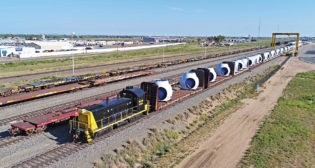
USDOT Headquarters to be Named for Secretaries Coleman, Mineta
Written by Marybeth Luczak, Executive Editor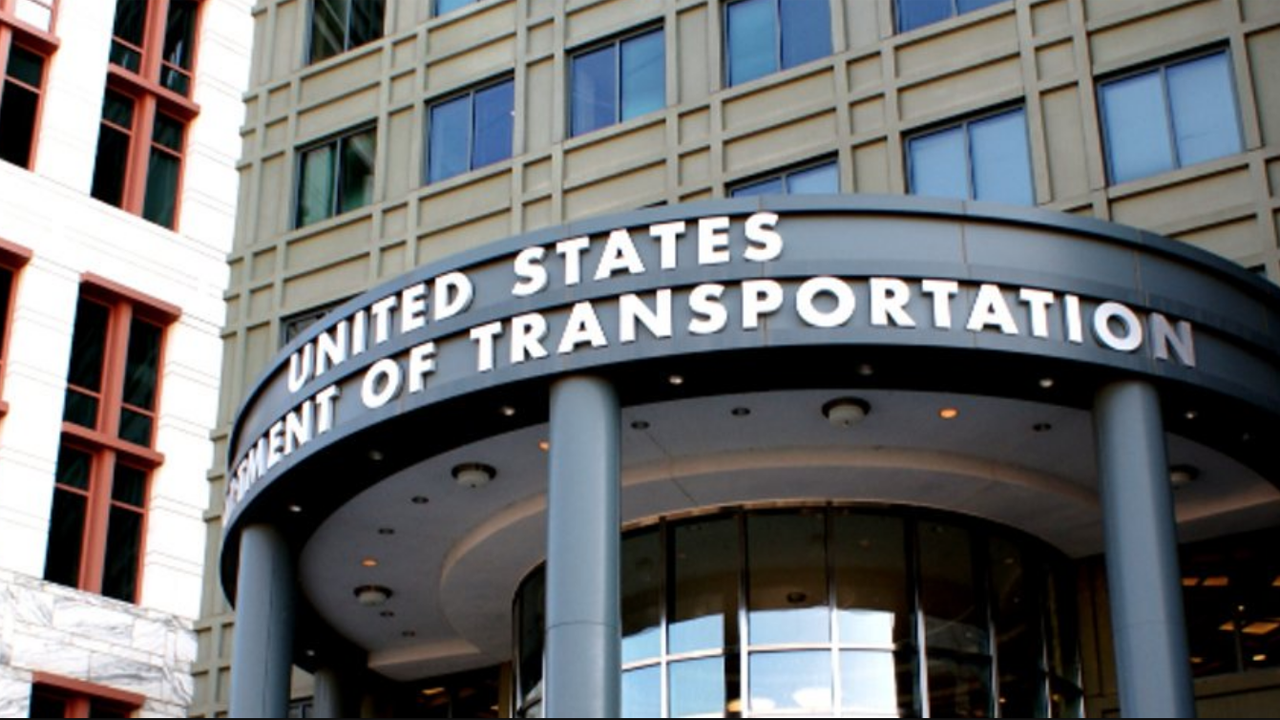
President Joe Biden on May 6 signed a bill naming the U.S. Department of Transportation’s headquarters in Washington, D.C., the “William T. Coleman, Jr. and Norman Y. Mineta Federal Building.”
The U.S. Senate on April 6 passed legislation to name the headquarters building at 1200 New Jersey Ave., SE, after two former USDOT Secretaries of Transportation: Coleman, the first African American to run the agency (1975-77), and Mineta, the first Asian American (2001-06). Mineta died May 3, 2022; Coleman, March 31, 2017.
“This week [week of May 1], our nation lost an American hero and I lost a dear friend in Norman Mineta,” President Biden said in a May 6 statement on the William T. Coleman, Jr. and Norman Y. Mineta Federal Building Act that he signed and the passing of Mineta. “Earlier today, I signed a bill to name the United States Department of Transportation headquarters in his honor, along with the late William T. Coleman, Jr.
“As a boy during World War II, Norm and his family were cruelly confined in the Heart Mountain Relocation Center in Wyoming during America’s shameful period of Japanese Incarceration. Undaunted—and eternally hopeful—Norm was motivated by this early injustice to pursue a life of service. He was determined to ensure that the nation he loved lived up to its defining promise of liberty, equality and justice for all—and he worked with grace and dignity to bring us closer to those ideals.
“Norm will always be remembered for the many barriers he broke. He was the first Asian American to serve as Mayor of a major city—his beloved hometown of San Jose—as well as the first Asian American to serve in the Cabinet. Over two decades in the House of Representatives, Norm was a force of purpose and progress. He was the first chair of the Congressional Asian Pacific American Caucus, and led passage of the landmark Civil Liberties Act of 1988—legislation that, at long last, acknowledged and remunerated families like his own who had been incarcerated in camps during World War II.
“But beyond his remarkable lifetime of accomplishments, I will remember Norm for his steadfast commitment to a belief he held dear: that America can accomplish anything when we come together. It is no accident that Norm was entrusted to lead Cabinet departments under both Democratic and Republican presidents—nor that some of his closest friendships in Congress were with members across the political spectrum. Norm treated everybody he met with equal dignity, and earned the respect of all who knew him.
“Our thoughts are with Norm’s wife, Deni, his four children, his 11 grandchildren, and generations of constituents and staff who were inspired by the power of his example and who followed his lead in serving this nation.
“May God bless Norman Mineta.”
Background
Leading the passage of the William T. Coleman, Jr. and Norman Y. Mineta Federal Building Act were Sens. Roger Wicker (R-Miss.) and Maria Cantwell (D-Wash.), Ranking Member and Chair, respectively, of the Senate Committee on Commerce, Science, and Transportation; Sens. Tom Carper (D-Del.) and Shelley Moore Capito (R-W.Va.), Chair and Ranking Member, respectively, of the Senate Committee on Environment and Public Works; and nine other senators. (The Commerce Committee exercises jurisdiction over the USDOT.)
The Act represents a compromise between H.R. 4689—introduced by House Committee on Transportation and Infrastructure Chair Peter A. DeFazio (D-Ore.) and passed by the House in November 2021 to name the building for Mineta—and S. 400, originally passed by the Senate in April 2021 to name the building for Coleman.
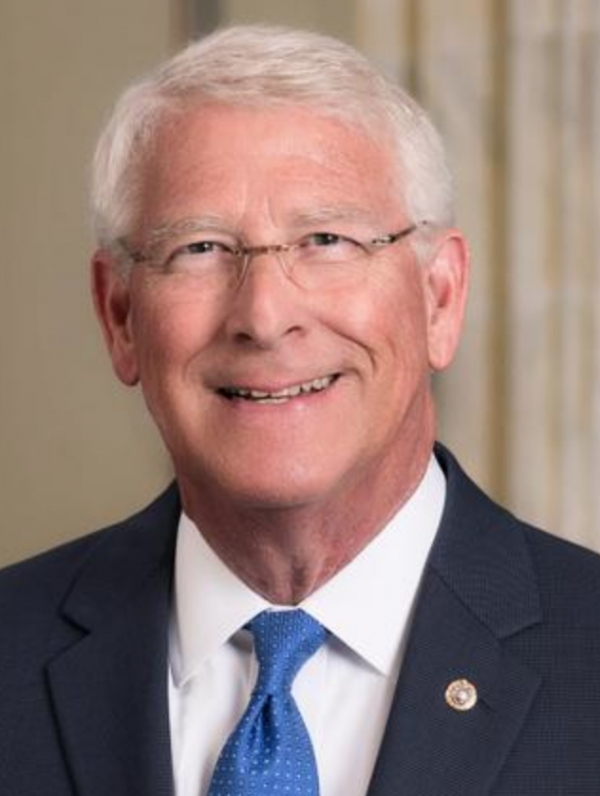
“As an accomplished legal scholar, World War II veteran and civil rights leader, Mr. Coleman had already made his mark on history before being selected to serve as Secretary of Transportation,” Sen. Wicker said on April 6. “While at DOT, he provided a forward-looking vision for the future of transportation, spearheading the first comprehensive national transportation policy study and several important reform efforts.
“Norm Mineta’s work as U.S. Secretary of Transportation was vital to the United States’ response and recovery from the tragedy of 9/11. America is a better nation because of his trailblazing public service. Naming the Department of Transportation headquarters after these two distinguished public servants is a fitting tribute.”
“As dedicated public servants, William Thaddeus Coleman, Jr. and Norman Mineta broke countless barriers and made our nation a better place,” Sen. Carper said on April 6. “It is only fitting that we memorialize their service and leadership by renaming the U.S Department of Transportation headquarters in their honor. Passing this legislation moves us one step closer to making this a reality.”
“I look forward to seeing President Biden sign this bill into law,” said Sen. Patrick Toomey (R-Pa.) on April 6; he is one of the nine other cosponsors, including Sens. Bob Casey (D-Pa.), Tammy Duckworth (D-Ill.), Raphael Warnock (D-Ga.), Tim Scott (R-S.C.), Dan Sullivan (R-Alaska), Cory Booker (D-N.J.), James Inhofe (R-Okla.), and John Barrasso (R-Wyo.).
William Thaddeus Coleman, Jr.
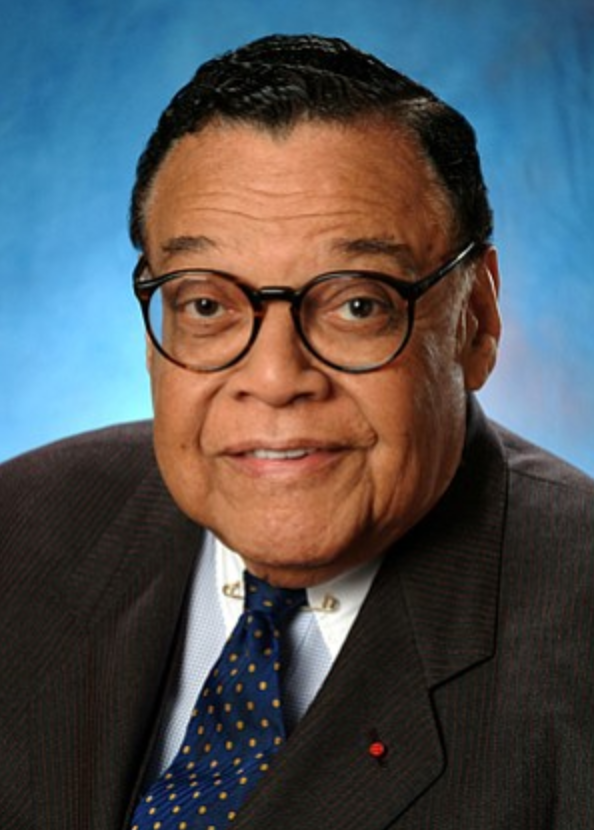
On March 7, 1975, Coleman became the fourth Secretary of Transportation, and the second African American to hold a Cabinet post, following Robert C. Weaver’s service as Secretary of Housing and Urban Development (1966-68).
“As a young attorney, Coleman assisted future Supreme Court Justice Thurgood Marshall, then an attorney representing the NAACP Legal Defense Fund, in researching the complaint resulting in the landmark 1954 Civil Rights decision of Brown v. Board of Education of Topeka, Kansas,” Railway Age Capital Hill Contributing Editor Frank N. Wilner reported on April 7. “Interestingly, the plaintiff, third-grade student Linda Brown, was the daughter of Oliver Brown, a welder employed by Atchison, Topeka & Santa Fe Railway.”
Coleman went on to serve as legal counsel for the cities of Cincinnati, Ohio, and Philadelphia, Pa., and as special counsel for Southeastern Pennsylvania Transportation Authority, according to a biography compiled by the U.S. Federal Highway Administration, which noted that he was a director of Pan American World Airways at the time of his USDOT nomination.
As Transportation Secretary under President Gerald R. Ford, Coleman helped to advance the Washington Metro rapid transit system and fund Atlanta, Ga., and Baltimore, Md., rail transit; created the first Statement of National Transportation Policy in U.S. history; opened the National Highway Traffic Safety Administration’s automobile test facility in East Liberty, Ohio; and established the Materials Transportation Bureau to address pipeline safety and the safe shipment of hazardous materials; among other accomplishments.
Norman Yoshio Mineta
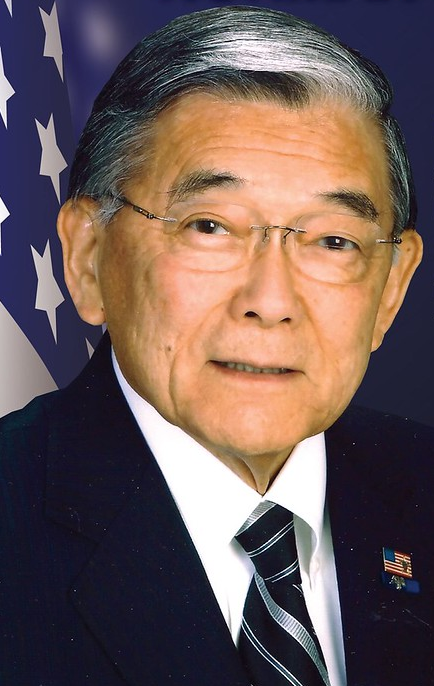
Mineta became the 14th Secretary of Transportation on Jan. 25, 2001, and was the longest-serving leader in USDOT history. He was also the first Cabinet member to switch directly from a Democratic Cabinet (as Secretary of Commerce under President Bill Clinton) to a Republican Cabinet (as Secretary of Transportation under President George W. Bush).
Mineta took action to ground all planes on Sept. 11, 2001; oversaw the Coast Guard response to the terrorist attacks; and guided the creation of the Transportation Security Administration, which was transferred to the U.S. Department of Homeland Security in March 2003. After Hurricane Katrina in 2005, Mineta worked to repair and reopen major highways, seaports and airports.
“As Transportation Secretary, Mineta supported increased loan guarantees for Amtrak, especially for the Northeast Corridor, which he proposed ‘eventually’ to be turned over to an eight-state consortium,” Wilner reported on April 7. “He was quoted in 2005 that ‘What we want to do with the Northeast Corridor is invest in the physical infrastructure to bring it up to a good state of repair, and then, at that point, turn it over to the states.’
“On the occasion of the 40th anniversary of the 1980 Staggers Rail Act, he joined with dozens of current and former lawmakers and other public officials in a letter to the Surface Transportation Board that concluded, ‘We implore the STB to preserve the delicate regulatory balance created by the Staggers Rail Act, allowing freight railroads to innovate, adapt and reinvest in the rail network.’”
Mineta, a Democrat from California, served as a member of the House of Representatives from 1975 to 1995. Between 1992 and 1994, he was Chair of the House Public Works and Transportation Committee, whose portfolio included railroads until the creation of the House Transportation and Infrastructure Committee in 1995. Mineta was also a key author of the Intermodal Surface Transportation Efficiency Act of 1991.
Both Coleman and Mineta were recognized with the Presidential Medal of Freedom, the nation’s highest civil award; Coleman received it from President Bill Clinton in September 1995, and Mineta, from President George W. Bush in December 2006.
Mineta died May 3, 2022. Coleman died March 31, 2017.
Others do not have such glowing recollections. Commented one observer on April 8, “Bill Coleman and Norman Mineta are among the two cabinet members who did the most damage to Amtrak, including the elimination of numerous long-distance trains and the sacking of one of the company’s best presidents, David Gunn. They join former Rep. John Mica (R-Fla.) in the pantheon of the ‘Amtrak Enemies Hall of Shame.’ This is a travesty.”


